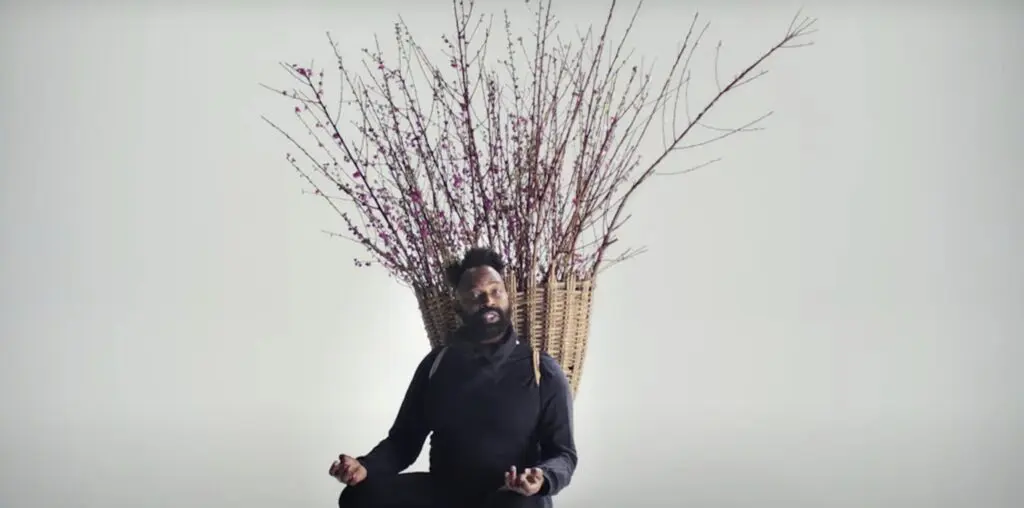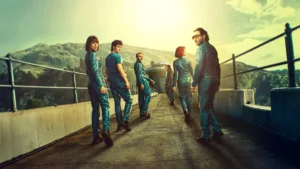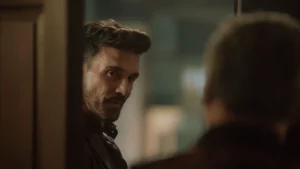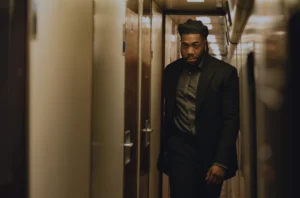Summary
Quibi’s Centrepiece with Maurice Harris is worth a stab — the conversations are way more interesting than the end result.
Quibi original series Centrepiece with Maurice Harris was released on the platform on May 18, 2020.
Surely it’s no coincidence that on the day Netflix releases The Big Flower Fight, Quibi release their bite-sized pilot episode for Centrepiece with Maurice Harris. These coincidences always feel strange but maybe Quibi felt they can compete in the florist industry, fighting for their gardeners.
Centrepiece with Maurice Harris is different from the former — it’s not a competition. The Quibi series follows visionary florist Maurice Harris as he interviews creatives to understand their personality, process and background. At the end of the episode, he creates a centrepiece that reflects their conversation. There’s evidently a process behind this based on colours and type of flower, but the Quibi series mostly relies on who he is interviewing, rather than the end result.
Centrepiece with Maurice Harris has not released all the episodes in one batch. In the pilot, Maurice interviews Maya Rudolph who explains her magical world. The interview is purposefully kooky and quirky as they navigate through Maya’s stories and the creative process rather thoroughly. It’s difficult to understand the need for the concept; the overall feeling is that it’s banding together creatives for creativity’s sake and in the end, what’s produced is a floral design.
But going from The Big Flower Fight, which details the thought process of the design, to 6-minute episodes of a visionary florist putting something together with presumed speed, means that the end-product, the centrepiece, feels redundant to the series. It’s just an opportunity to put celebrities on a seat to talk. But, we mustn’t grumble too much; future episodes will include Rashida Jones and Tessa Thompson — so maybe this series does have a way to bring in viewers and enlighten us with creative conversation and florist designs.
Quibi’s Centrepiece with Maurice Harris is worth a stab — the conversations are way more interesting than the end result.




